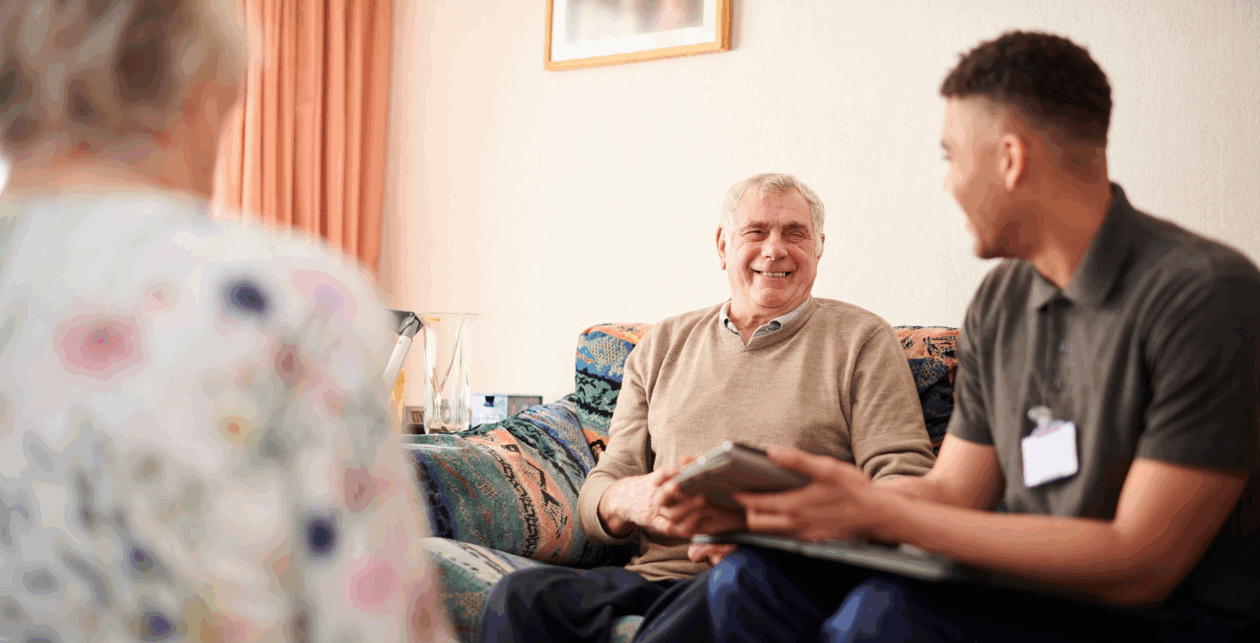Risk, rights, and supported decision-making in dementia support

In the dementia sector, we often talk about safety. We also talk about rights. But too often, we don’t put rights and risk on the same platform. This year, new international research on risk and autonomy in dementia care has surfaced some important issues that we need to think about here in Aotearoa New Zealand.
To read the full research, visit: Risk assessment for people living with dementia: a systematic review.
The study explored how risk is assessed and managed when people with dementia mate wareware lose self-determination. Its key finding? When risk assessments are carried out, the voices of people with dementia mate wareware are too often absent. The default remains to make decisions for people, not with them.
What the research tells us
The review highlighted three perspectives:
- People with dementia mate wareware – see risk as deeply connected to the loss of control. They are often aware of risks and can describe them, yet their voices are rarely included in formal assessments.
- Whānau and families – tend to frame risk through the lens of protection. Wanting to keep loved ones safe, they sometimes prioritise safety above independence, even when this reduces autonomy.
- Professionals – often adopt a risk-averse stance, driven by clinical frameworks and organisational liability. Risk becomes something to be minimised, not shared.
The result? Risk assessments frequently silence the very voices they are designed to safeguard.
Positive risk management
This is where positive risk management, also known as risk enablement, comes in. It balances the advantages of taking risks against the harms of trying to avoid them. When risk is over-controlled, restrictions can become excessive, stripping people of autonomy and connection.
Done well, risk enablement leads to:
- Increased confidence.
- Greater self-satisfaction.
- Preserved identity and dignity.
It reframes risk as part of a meaningful life, not something to be eliminated at all costs.
Why this matters in Aotearoa New Zealand
Internationally, the research shows that autonomy is often progressively lost, especially in institutional settings. While substitute decision-making is not always the default elsewhere, here in Aotearoa New Zealand, it usually is once an Enduring Power of Attorney is activated.
This creates a troubling pattern: people with dementia mate wareware may have their rights restricted and their opportunities to make decisions about risk reduced simply because they carry a diagnosis. Decisions that could be shared are too often shifted entirely to others.
That is why supported decision-making must sit alongside substituted decision-making.
Supported decision-making is not just about outcomes, it is profoundly about the process of inclusion. It is about ensuring that people with dementia mate wareware are:
- Invited into conversations that affect their lives.
- Given support to express their will and preferences in ways that work for them whether through words, gestures, routines, or relationships.
- Respected as active participants, not passive recipients of care.
At its best, supported decision-making helps people to:
- Balance things out, rather than being shielded from all risk.
- Sustain mana and personhood, by being included in meaningful ways that affirm identity and dignity.
- Build resilience, by continuing to have a say in their lives, even as abilities change.
I really value this new international research because it doesn’t shy away from the nuances and challenges of risk. It shows how differently risk is understood by people with dementia mate wareware, their whānau, and professionals, and how easily voices can be left out.
While it offers an international perspective, the lessons are highly relevant to us here in Aotearoa New Zealand. It pushes us to ask: whose voice is heard, whose is missing, and how do we make sure people are supported to participate in decisions about risk?
Supported decision-making is building momentum
This is an exciting time in Aotearoa New Zealand. There is growing momentum around supported decision-making as a mechanism for giving back control and elevating people’s voices. The launch of Support My Decisions is an important step in raising awareness and providing practical tools.
But there is more to do in the dementia mate wareware space. Unless we embed supported decision-making and risk enablement into daily practice, the cumulative impacts of lost control will continue to weigh heavily on people with dementia mate wareware and their whānau.
Looking ahead
Every month, I’ll be sharing a deep dive into new research that matters for dementia care. This 2025 review on risk and autonomy is a powerful starting point: it reminds us that risk is not just a hazard to be controlled, but a space where rights, resilience, and dignity can be protected if we get the balance right.

